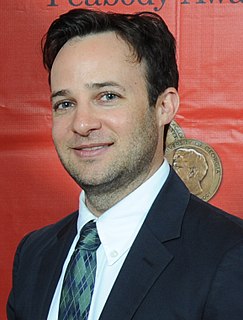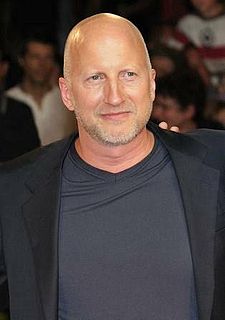A Quote by John Steinbeck
When a condition or a problem becomes too great, humans have the protection of not thinking about it. But it goes inward and minces up with a lot of other things already there and what comes out is discontent and uneasiness, guilt and a compulsion to get something--anything--before it is all gone.
Related Quotes
Guilt is not a response to anger; it is a response to one’s own actions or lack of action. If it leads to change then it can be useful, since it is then no longer guilt but the beginning of knowledge. Yet all too often, guilt is just another name for impotence, for defensiveness destructive of communication; it becomes a device to protect ignorance and the continuation of things the way they are, the ultimate protection for changelessness.
One of the things that I share with Bryan Becket is this hole in my childhood memory. There's about five years of my life that's virtually gone. I've thought about it a lot, and I've come to the conclusion that it might be for my own protection that those memories are gone, and maybe I don't want to dredge up those things.
Christianity seems at first to be all about morality, all about duties and rules and guilt and virtue, yet it leads you on, out of all that, into something beyond. One has a glimpse of a country where they do not talk of those things, except perhaps as a joke. Every one there is filled full with what we should call goodness as a mirror is filled with light. But they do not call it goodness. They do not call it anything. They are not thinking of it. They are too busy looking at the source from which it comes.
When we are not engaged in thinking about some definite problem, we usually spend about 95 percent of our time thinking about ourselves. Now, if we stop thinking about ourselves for a while and begin to think of the other person's good points, we won't have to resort to flattery so cheap and false that it can be spotted almost before it is out of the mouth.
Thinking about something is like picking up a stone when taking a walk, either while skipping rocks on the beach, for example, or looking for a way to shatter the glass doors of a museum. When you think about something, it adds a bit of weight to your walk, and as you think about more and more things you are liable to feel heavier and heavier, until you are so burdened you cannot take any further steps, and can only sit and stare at the gentle movements of the ocean waves or security guards, thinking too hard bout too many things to do anything else.
Boundaries emerge from deep within. They are connected to letting go of guilt and shame, and to changing our beliefs about what we deserve. As our thinking about this becomes clearer, so will our boundaries. Boundaries are also connected to a Higher Timing than our own. We’ll set a limit when we’re ready, and not a moment before. So will others. There’s something magical about reaching that point of becoming ready to set a limit. We know we mean what we say; others take us seriously too. Things change, not because we’re controlling others, but because we’ve changed.
He read a lot. He used a lot of big words. I think maybe part of what got him into trouble was that he did too much thinking. Sometimes he tried too hard to make sense of the world, to figure out why people were bad to each other so often. A couple of times I tried to tell him it was a mistake to get too deep into that kind of stuff, but Alex got stuck on things. He always had to know the absolute right answer before he could go on to the next thing.
My great hope for us as young women is to start being kinder to ourselves so that we can be kinder to each other. To stop shaming ourselves and other people for things we don't know the full story on - whether someone is too fat, too skinny, too short, too tall, too loud, too quiet, too anything. There's a sense that we're all ‘too’ something, and we're all not enough.
If I'm flying to China, I can sit and think about a problem. Other scientists have to go to the lab. I'm always thinking about maths, even when I'm doing other things. A lot of the time you're going up blind alleys and it's very frustrating, but then you have a sudden rush of ideas. You can live off that for quite some time.
There's something about TV shows and the format that becomes a bit more personal. People watch two, three in a row before they get out of bed on their laptop or when they get home from going out and before they go to sleep. People make shows part of their daily routine, and that makes them take ownership of it. If you're so arrogant as to call yourself an artist, you can't ask for anything more than that.
Writing a story starts out as a puzzle in your mind, of "What is it I'm fantasizing about right now that makes me think this is going to be worth years of work?" And you just keep pushing and trying to figure it out, and once you've hit on these resonances... Then as a screenwriter, it can be dangerous if you get too hooked on just finding things that resonate with each other, because then you risk getting into stuff that's too neat, and becomes stifled as storytelling. But you do feel like you're on the right track when you start to have a sense of what goes with what.
I think there's a lot of shame in American race relations. There's a lot of suppressed guilt that lashes itself out still. I see that all the time, and whereas opposed to sort of trying to address the issue in an up-front way, they're attacking and thus perpetuating the problem thinking that they're being sophisticated and post-racial, when, in fact, they're being completely regressive.



































